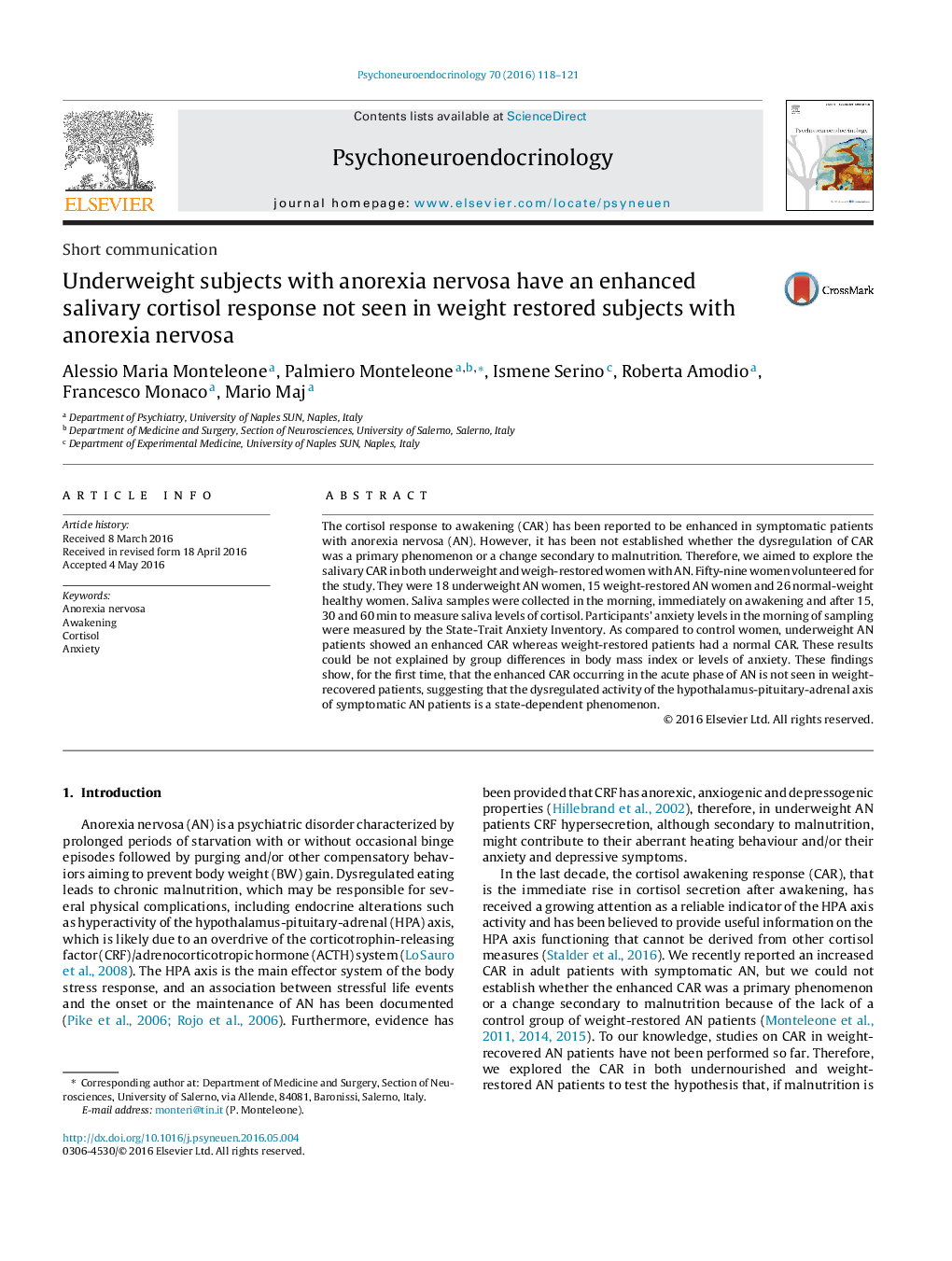| Article ID | Journal | Published Year | Pages | File Type |
|---|---|---|---|---|
| 337214 | Psychoneuroendocrinology | 2016 | 4 Pages |
•The cortisol awakening response (CAR) provides useful information on the functioning of the hypothalamus-pituitary-adrenal axis.•Undernourished AN patients exhibited an enhanced CAR.•Weight-restored AN patients showed a normal CAR.•These findings suggest that the dysregulated CAR in the acute phase of AN might be a malnutrition-dependent phenomenon.
The cortisol response to awakening (CAR) has been reported to be enhanced in symptomatic patients with anorexia nervosa (AN). However, it has been not established whether the dysregulation of CAR was a primary phenomenon or a change secondary to malnutrition. Therefore, we aimed to explore the salivary CAR in both underweight and weigh-restored women with AN. Fifty-nine women volunteered for the study. They were 18 underweight AN women, 15 weight-restored AN women and 26 normal-weight healthy women. Saliva samples were collected in the morning, immediately on awakening and after 15, 30 and 60 min to measure saliva levels of cortisol. Participants’ anxiety levels in the morning of sampling were measured by the State-Trait Anxiety Inventory. As compared to control women, underweight AN patients showed an enhanced CAR whereas weight-restored patients had a normal CAR. These results could be not explained by group differences in body mass index or levels of anxiety. These findings show, for the first time, that the enhanced CAR occurring in the acute phase of AN is not seen in weight-recovered patients, suggesting that the dysregulated activity of the hypothalamus-pituitary-adrenal axis of symptomatic AN patients is a state-dependent phenomenon.
